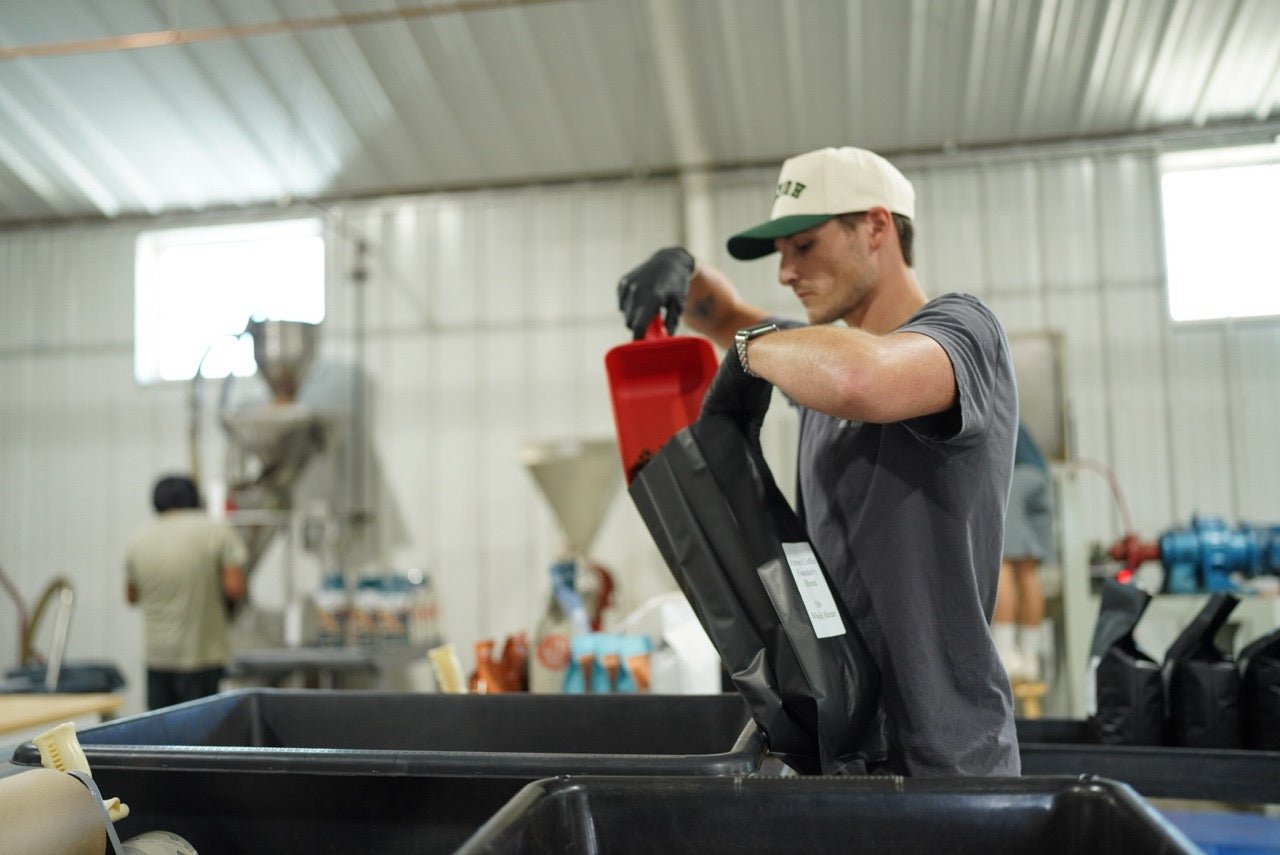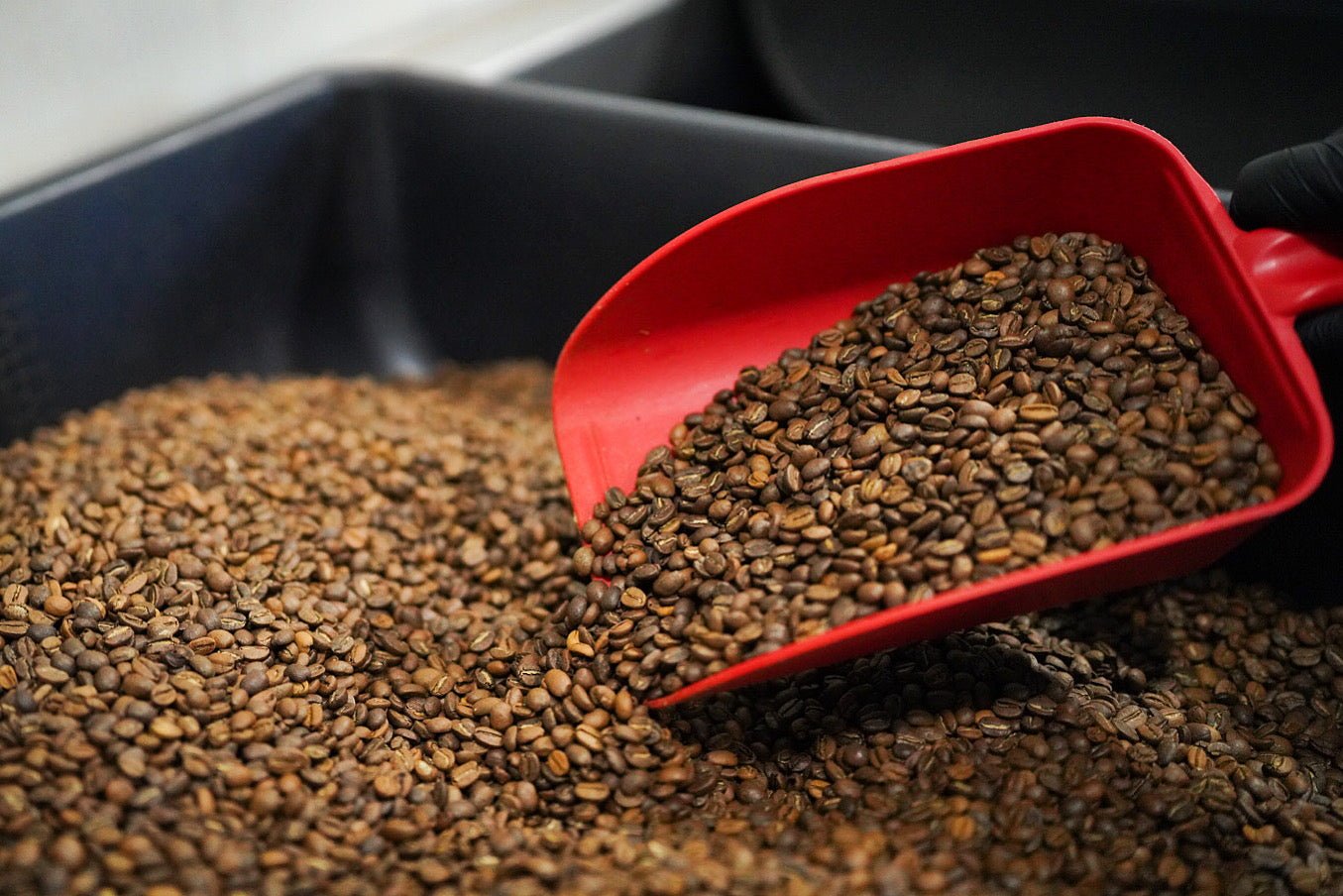How Much Coffee for 12 Cups? A Guide to Brewing the Perfect Pot
Brewing the perfect pot of coffee can be an art, especially when it comes to determining the right coffee-to-water ratio. A common question among coffee enthusiasts is, "How much coffee should I use for 12 cups?" In this article, we'll discuss the ideal coffee-to-water ratio, how to measure coffee and water accurately, and some additional tips to help you brew the perfect pot of coffee for 12 cups.
-
Understanding the Coffee-to-Water Ratio: To brew a delicious and well-balanced pot of coffee, it's essential to use the right coffee-to-water ratio. The generally recommended ratio is 1:15 to 1:18, which means one part of coffee to 15 to 18 parts of water. This ratio can vary depending on personal taste preferences, the type of coffee beans, and the brewing method.
-
Measuring Coffee Accurately: The most accurate way to measure coffee is by weight, using a digital kitchen scale. Weighing your coffee ensures a consistent and precise measurement, resulting in a more predictable and better-tasting brew. For a standard 12-cup coffee pot, you'll need around 60 to 90 grams (2 to 3 ounces) of coffee, depending on the desired strength and the 1:15 to 1:18 coffee-to-water ratio.
-
Measuring Water Accurately: It's also crucial to measure the water accurately when brewing coffee. One cup of water in coffee brewing typically refers to 6 fluid ounces (177 milliliters). Therefore, for a 12-cup pot of coffee, you'll need 72 fluid ounces (2.1 liters) of water.
-
Coffee Grind Size: The grind size of your coffee also plays a significant role in determining the taste and strength of your brew. For a standard drip coffee maker, a medium grind is generally recommended. However, you may need to adjust the grind size based on the specific brewing method and personal taste preferences.
-
Brewing Tips for a Perfect 12-Cup Pot of Coffee: Now that you know the ideal coffee-to-water ratio and how to measure both accurately, follow these additional tips to ensure a perfect pot of coffee:
a) Use fresh, high-quality coffee beans: The quality and freshness of your coffee beans have a significant impact on the taste of your brew. Choose freshly roasted, high-quality coffee beans and grind them just before brewing for the best flavor.
b) Clean your coffee maker: Regularly clean your coffee maker to remove any buildup of oils, minerals, and other residues that can affect the taste of your coffee.
c) Use filtered water: The quality of the water you use to brew your coffee also affects its taste. Using filtered water can help eliminate any impurities that might interfere with the coffee's natural flavors.
d) Pre-wet the coffee filter: Before adding the coffee grounds to the filter, rinse it with hot water to remove any residual paper taste and to preheat the brew basket.
e) Use the right brewing temperature: The ideal water temperature for brewing coffee is between 195°F and 205°F (90°C to 96°C). This temperature range ensures optimal extraction of the coffee's flavors and aroma.
f) Stir the coffee after brewing: Once the brewing process is complete, give the coffee a gentle stir to ensure that the flavors are evenly distributed throughout the pot.
Experiment and Adjust: It's essential to remember that personal taste preferences can vary, and the ideal coffee-to-water ratio for one person might not be the same for another. Don't be afraid to experiment with different ratios, grind sizes, and brewing techniques to find the perfect combination that suits your palate. Make small adjustments to the amount of coffee, water, and grind size, and note the changes in flavor and strength. This process will help you fine-tune your brewing method and achieve the perfect cup of coffee tailored to your taste preferences.
-
Be Consistent: Once you have found your preferred coffee-to-water ratio and brewing method, it's essential to be consistent with your measurements and technique. Use the same scale, measuring tools, and coffee maker to ensure that each pot of coffee you brew is as delicious and satisfying as the last.
-
Invest in Good Equipment: The quality of your coffee brewing equipment can also have a significant impact on the taste and consistency of your coffee. Consider investing in a good-quality coffee maker, grinder, and accessories that allow you to control variables like water temperature, brewing time, and grind size more accurately. High-quality equipment will not only improve the taste of your coffee but also make the brewing process more enjoyable and efficient.
-
Storing Coffee Properly: Proper storage of your coffee beans is crucial for preserving their freshness and flavor. Store your coffee beans in an airtight container, away from direct sunlight, heat, and moisture. Avoid storing coffee in the refrigerator or freezer, as this can cause condensation and damage the beans. By maintaining the freshness of your coffee beans, you'll be able to enjoy a consistently great-tasting pot of coffee every time.
-
Enjoy the Process: Brewing the perfect pot of coffee can be a rewarding and enjoyable experience. Take the time to appreciate the aroma, taste, and ritual of brewing coffee, and share your newfound knowledge and skills with friends and family. As you continue to refine your brewing technique, you'll develop a deeper appreciation for the nuances and complexities of coffee, turning a simple daily routine into a cherished ritual.
In conclusion, brewing the perfect 12-cup pot of coffee requires attention to detail, experimentation, and a commitment to quality and consistency. By understanding the importance of the coffee-to-water ratio, accurate measurements, and various brewing factors, you can elevate your coffee-making skills and enjoy a delicious, well-balanced pot of coffee every time.


